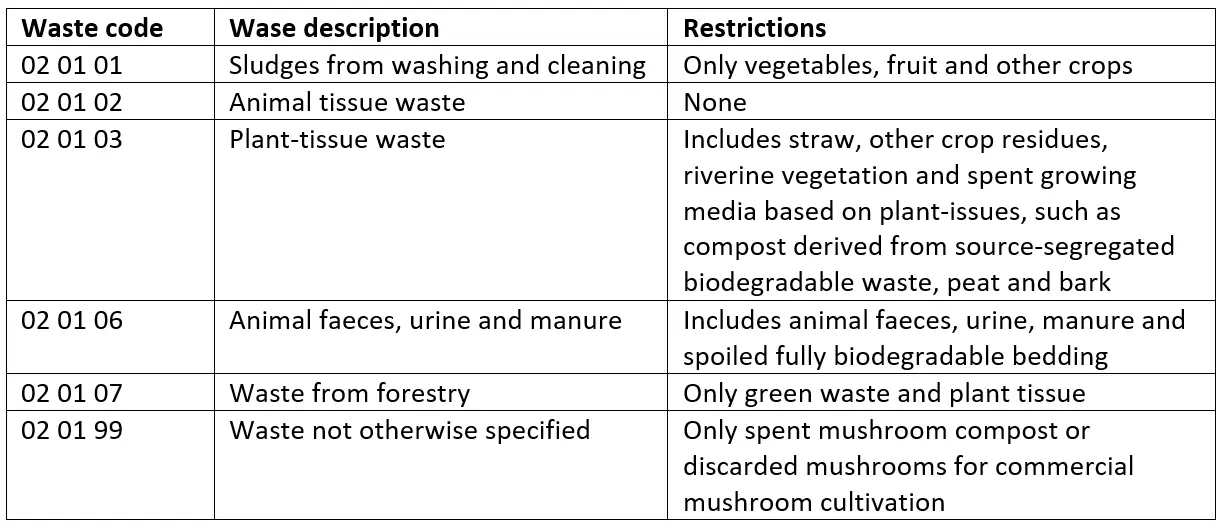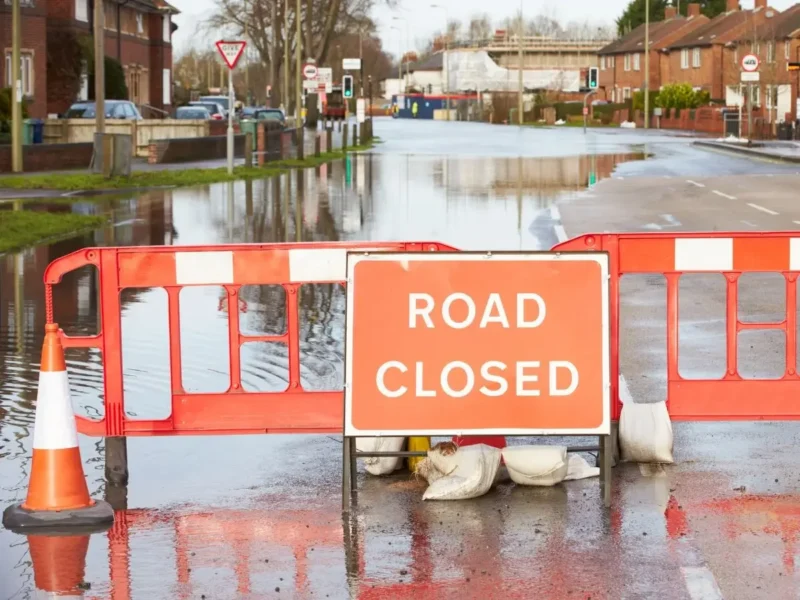Your monthly update on legislation, guidance, interesting news articles, and webinars from the environmental sector.
Legislation
Energy Performance of Buildings (Scotland) Regulations 2025
These regulations will revoke and replace the Energy Performance of Buildings (Scotland) Regulations 2008. The draft legislation has not yet been made as a Scottish Statutory Instrument.
The regulations will initially come into force on 1st January 2026 to allow for the approval of organisations and accreditation schemes and will come fully into force on 31st October 2026.
The legislation will apply in Scotland only.
A new rating system will apply to energy performance certificates for domestic and non-domestic buildings in Scotland. Assessors will need to be accredited under approved schemes and site-based audits will be introduced for assessors.
Source: Greenspace
For the full draft of the legislation, click here.
Guidance
Waste Quality Protocols Review
Waste Quality Protocols (QPs) are end of waste frameworks that industry can volunteer to follow. They set out the requirements for when certain wastes can become non-wastes once they have been fully recovered.
This means that the waste-derived material can be used without waste regulation controls.
There are 13 QPs for a range of waste-derived materials. However, these may now be out of date, for example, they might not:
- meet current technical standards,
- include the latest best practice.
For each QP, the Environment Agency (EA) will decide if:
- the EA will continue to support it and republish it as a resource framework on GOV.UK, if it meets current standards,
- it needs revising before republishing it as a resource framework,
- the EA will withdraw support because it no longer meets current standards.
The EA will update the GOV.UK page with outcomes of completed reviews.
How the EA will revise QPs
The EA will do an initial review of each QP to find out:
- if there are any issues that need to be addressed,
- what the new resource framework should include,
Revising each QP will:
- involve setting up a ‘task and finish group’ with industry,
- involve a comprehensive technical assessment of what is required to ensure that end of waste is met,
- take into account current information, technologies, scientific evidence and legislation.
If the ‘task and finish group’ is not set up by the date listed in the completed QP reviews section, the EA will withdraw support for the QP. If this happens, industry can still ask the EA to set up a task and finish group, but they will not be able to use the original QP as an end-of-waste framework.
Even if the EA start to revise a QP, they do not guarantee that they will agree and publish a new resource framework on GOV.UK.
If the review ends without agreement between us and industry, the EA will withdraw support for the QP.
Agreeing costs and funding
The EA will invite the industry to work with them to set up a ‘task and finishing group’ to review each QP. Industry must meet the cost of this.
The EA will follow the definition of waste charging scheme to work out the costs that industry will need to pay. An initial fee will be charges to assess the scope of the project.
Revising of the QP will not start until:
- The cost estimate for the full project has been agreed
- The contract that sets outs the roles and responsibilities of the ‘task and finishing group’ has been agreed
- The contract is signed.
When you can still use a QP
While a QP is being revised, industry can continue to use the QP until either:
- A new resource framework is agreed
- The revision concludes without resolution and the QP is withdrawn.
When a new resource framework is published
The EA will have the final say on whether a revise resource framework will be published.
Once a new resource framework has been published, industry can use it to achieve end of waste.
If a revision is agreed, the EA will support the transition from the original QP to the new resource framework.
You must comply with full waste regulatory controls if you want to use the original QP after the EA have published a replacement resource framework.
Completed QP reviews
Details of reviews of QPs that have been completed, the review outcome and their current status are published on the GOV.UK website and include the following:
- Anaerobic digestate
- Compost
- Poultry litter ash
- Aggregates from inert wastes
- Processed fuel oil
- Tyre-derived rubber material
- Pulverised fuel ash and furnace bottom ash
- Biomethane from waste.
Ongoing QP reviews
Non packaging plastics: review starting with a call for evidence to industry due at the end of June 2025.
QP reviews that have not started
The following QPs still require review:
- Biodiesel
- Recycled gypsum from waste plasterboard
- Aggregate from steel slag
- Flat glass.
If a QP have been reviewed and needs revising, you can apply to be part of a ‘task and finish group’ to revise it. Please either:
- Liaise with the relevant industry body or certification scheme.
- Email the EA resource frameworks team at
resourcesframeworks@environment-agency.gov.uk.
This guidance applied to England.
Source: GOV.UK
For the full guidance, click here.
Storing PAS 100 or PAS 110 Complaint Material at Site of Production: RPS 358
This Regulatory Position Statement (RPS) does not change your legal requirement to have an environmental permit for storing British Standards Institution (BSI) certified PAS 100 compost or PAS 110 digestate made from waste on the site of production before dispatch to a customer, when you do not have the records to meet the requirements of the:
The EA will not normally take enforcement action against you if you do not comply with the legal requirement in the RPS provided that:
- your activity meets the description set out in this RPS,
- you comply with the conditions set out in this RPS.
In addition, your activity must not cause (or be likely to cause) pollution of the environment or harm to human health, and must not:
- cause a risk to water, air, soil, plants or animals,
- cause a nuisance through noise or odour,
- adversely affect the countryside or places of special interest.
This RPS, published on 20th October 2025, applies to the storage of BSI certified PAS 100 compost or PAS 110 digestate at the site of production or a storage site under your control.
You must:
- comply with all requirements of the resource framework that applies to you – for compostor anaerobic digestate,
- comply with all requirements of BSI PAS 100 for compost or BSI PAS 110 for digestate, and their associated certification schemes,
- apply for a new permitfor the storage of BSI PAS 100 or BSI PAS 110 materials by 31st March 2026.
You must email resourcesframeworks@environment-agency.gov.uk before you use this RPS. You must do this by 31st December 2025 and include the following:
- ‘RPS 358’ in the subject line,
- your name,
- your company name,
- your contact details,
- the address of the site where the material is being stored.
You cannot register use of this RPS after 31st December 2025. Instead, you will need to comply with the resource framework requirements in full.
You can continue to use this RPS until a permit has been issued or your permit application has been refused.
If your permit application is refused, you must:
- stop storing PAS 100 or PAS 110 material,
- remove all stocks of PAS 100 or PAS 110 material from the site within four weeks of the date of refusal.
Note: This RPS only applies to material which has been produced to comply with BSI PAS 100 or BSI PAS 110 under the following:
The EA will only consider the PAS compliant digestate or compost to have met the ‘end of waste’ test when it’s dispatched, or stored when it is certain it will be used, in line with section 3 of these resource frameworks.
This RPS is to give time for operators to apply for permits or permit variations to store PAS compliant digestate or compost before dispatch to the customer.
This RPS only applies to England and will expire on 20th October 2026. The EA can withdraw or amend this RPS before it expires if they consider it necessary. You will need to check back from time to time, including at and before the expiry date, to see if this RPS still applies.
Source: GOV.UK
For the full guidance, click here.
Using PAS 100 or PAS 110 Complaint Material Outside Resource Frameworks: RPS 317
This RPS does not change your legal requirement to have an environmental permit for a waste operation when you store and use BSI certified PAS 100 compost or PAS 110 digestate made from waste that does not meet the plastics limit in the:
The EA will not normally take enforcement action against you if you do not comply with the legal requirement in the RPS provided that:
- your activity meets the description set out in this RPS,
- you comply with the conditions set out in this RPS.
In addition, your activity must not cause (or be likely to cause) pollution of the environment or harm to human health, and must not:
- cause a risk to water, air, soil, plants or animals,
- cause a nuisance through noise or odour,
- adversely affect the countryside or places of special interest.
This RPS, published on 20th October 2025, applies to the storage and use of BSI certified PAS 100 compost or PAS 110 digestate that does not meet the plastics limit set out in the:
You must:
- email resourcesframeworks@environment-agency.gov.ukbefore you use this RPS with ‘RPS 317’ in the subject line – you must do this by 20th April 2026,
- comply with all requirements of the applicable resource framework other than the plastics limit,
- comply with all requirements of BSI PAS 100 or PAS 110 certification scheme as appropriate,
- upgrade your plant and processes to comply with the applicable new resource framework plastics limit,
- send evidence of orders for new infrastructure and your plan to upgrade site processes within six months of registering use of this RPS to resourcesframeworks@environment-agency.gov.ukwith ‘RPS 317’ in the subject line,
- keep records for two years to show that you have complied with this RPS and make these records available to the Environment Agency on request.
You must meet the requirements of the resource framework in full by 20th October 2027.
You cannot register use of this RPS after 20th April 2026. Instead, you will need to comply with the resource framework requirements in full.
This RPS applies to England only and will expire on 20th October 2027.
The Environment Agency can withdraw or amend this regulatory position before it expires if they consider it necessary.
Source: GOV.UK
For the full guidance, click here.
Biomethane from Waste: Resource Framework
The EA has published the resource framework on how to meet ‘end of waste’ status for biomethane produced from organic wastes in a landfill site or anaerobic digestion plant on 20th October 2025.
This resource framework is to help you understand when biomethane products are no longer considered waste, meaning they meet the ‘end of waste’ test. This is so you can:
- understand when you no longer need to follow waste management controlsfor biomethane products,
- be confident that the quality of biomethane produced meets an approved standard,
- be confident that the quality of biomethane produced is suitable for use in appropriate markets,
- protect human health and prevent pollution of the environment.
You must keep to the requirements of your environmental permit when you:
- accept waste,
- generate, collect and treat biogas,
- upgrade that biogas to biomethane.
Biomethane products will meet the end of waste test, and so not be considered waste anymore, if you can show they have met the requirements for their intended use.
For this resource framework, there are two acceptable uses for biomethane products:
- biomethane for injection into the gas grid,
- biomethane for use as a fuel in an appliance suitably designed and operated for natural gas.
The EA will review this resource framework in 2028, with support from industry. The EA may update or withdraw this resource framework before this date because:
- pollution incidents,
- the resource framework being used incorrectly,
- developments in scientific understanding,
- a change in the market,
- a change in legislation or case law,
- a change to the agreed industry standard or input materials.
You can subscribe to email updates about this resource framework. These will tell you if it has changed and when it has been withdrawn. Use the ‘Get emails about this page’ link on this page.
This resource framework applies to England.
Source: GOV.UK
For the full guidance, click here.
Anaerobic Digestate: Resource Framework
The EA has published the resource framework on how to meet ‘end of waste’ status for digestate produced from anaerobic digestion of source-segregated biodegradable waste on 20th October 2025.
This resource framework is to help you understand when digestate products are no longer considered waste. Meaning they meet the ‘end of waste’ test. This is so you can:
- understand when you no longer need to follow waste management controlsfor digestate products,
- be confident that the quality of digestate produced meets an approved standard,
- be confident that the quality of digestate produced is suitable for use in appropriate markets,
- protect human health and prevent pollution of the environment, including soil.
To follow this resource framework, you must only use source-segregated biodegradable materials as defined in the British Standard Institution’s Publicly Available Specification 110 (2014) (BSI PAS 110).
The materials must also be compliant with the waste codes, descriptions and restrictions listed in the tables within the resource framework. For example:
Wastes from agriculture, horticulture, aquaculture, forestry, hunting and fishing, food preparation and processing.

Note: You can only use industrially compostable packaging and non-packaging items that are independently certified as compliant with at least one of the following:
- EN 13432
- EN 14995
- ASTM D6400.
You can only use home compostable packaging and non-packaging items that are independently certified as compliant with at least one of the following:
- EN 17427
- AS 5810-2010
- NF T51-800
- TUV Austria’s certification requirements for home compostable packaging under their ‘OK compost HOME scheme’.
The only standard which applies to this resource framework is BSI PAS 110. You can download free copies of BSI PAS 110 from:
The EA will review this resource framework in summer 2026, with support from industry. The EA may update or withdraw this resource framework before this date because of:
- pollution incidents,
- the resource framework being used incorrectly,
- developments in scientific understanding,
- a change in the market,
- a change in legislation or case law,
- a change to the agreed industry standard or input materials.
You can subscribe to email updates about this resource framework through the link.
This resource framework applies to England.
Source: GOV.UK
For the full guidance, click here.
Compost from waste: resource framework
The EA has published the resource framework on how to meet ‘end of waste’ status for compost produced from source-segregated biodegradable waste on 20th October 2025. The framework applies to England.
This resource framework relates to compost produced from source-segregated biodegradable waste (biowaste) and to help you understand when compost products are no longer considered waste. Meaning they meet the ‘end of waste’ test. This is so you can:
- understand when you no longer need to follow waste management controlsfor compost products,
- be confident that the quality of compost produced meets an approved standard,
- be confident that the quality of compost produced is suitable for use in appropriate markets,
- protect human health and prevent pollution of the environment.
To follow this resource framework, you must only use source-segregated biodegradable materials as defined in the British Standard Institution’s Publicly Available Specification 100 (2018) (BSI PAS 100).
The materials must also be compliant with the waste codes, descriptions and restrictions listed in the tables within the resource framework. For example:
Wastes from agriculture, horticulture, aquaculture, forestry, hunting and fishing, food preparation and processing.

Note: You can only use industrially compostable packaging and non-packaging items that are independently certified as compliant with at least one of the following:
- EN 13432
- EN 14995
- ASTM D6400.
You can only use home compostable packaging and non-packaging items that are independently certified as compliant with at least one of the following:
- EN 17427
- AS 5810-2010
- NF T51-800
- TUV Austria’s certification requirements for home compostable packaging under their ‘OK compost HOME scheme’.
The only standard which applies to this resource framework is BSI PAS 100. You can download copies of BSI PAS 100 from:
The EA will review this resource framework in summer 2026, with support from industry. The EA may update or withdraw this resource framework before this date because of:
- pollution incidents,
- the resource framework being used incorrectly,
- developments in scientific understanding,
- a change in the market,
- a change in legislation or case law,
- a change to the agreed industry standard or input materials.
You can subscribe to email updates about this resource framework through the link
For the full guidance, click here.
Source: GOV.UK
Extended Producer Responsibility for Packaging: Templates for Sampling and Inspection Plans
This guidance was first published on 8th July 2025 and applies to organisations in the UK that reprocesses or exports waste packaging and is not a charity.
If you are an organisation in the UK that reprocesses or exports waste packaging and you are not a charity, you must apply for registration to comply with EPR for packaging. You can also apply for optional accreditation. As part of your applications, you will need to supply a plan explaining how you determine the amount of UK packaging waste received for recycling at each reprocessing site – this is also called a Sampling and Inspection Plan (SIP).
The guidance has been updated to clarify the templates to be used for the submission of a sampling and inspection plan.
You must use these templates to submit SIPs for your applications. The templates have been developed and published in agreement with all four regulators.
Exporters of packaging waste must also submit a completed version of the Overseas Reprocessing and interim Sites log (ORS) form when applying for registration and accreditation.
There are four templates available: two for reprocessors and two for exporters. There is an additional OSR form for exporters.
To apply for mandatory registration, use one of the following:
- Packaging Reprocessor Sampling and Inspection Plan – Part 1: Registration
- Packaging Exporter Sampling and Inspection Plan – Part 1: Registration
To apply for optional accreditation, you must complete one of the following:
- Packaging Reprocessor Sampling and Inspection Plan – Part 2: Accreditation
- Packaging Exporter Sampling and Inspection Plan – Part 2: Accreditation
There is also supplementary guidance to support you to complete the questions in the SIP templates.
Overseas Reprocessing and interim Sites log (ORS)
Exporters of packaging waste must submit a completed version of the OSR form when applying for registration and accreditation. You may also need to submit evidence of broadly equivalent standards.
If you have any questions, contact the packaging team. Feedback is welcome for future iterations of the SIP templates.
Email: packaging@defra.gov.uk.
Source: GOV.UK
For the full guidance, click here.
Extended Producer Responsibility for Packaging: Recycling Obligations and Waste Disposal Fees
The guidance was first published on 19th December 2024 and applies to United Kingdom (UK) organisations that are affected by the Extended Producer Responsibility (EPR) for packaging and may need to get evidence of packaging waste recycling and pay disposal fees.
If you are a UK organisation that supplies or imports packaging, you may be affected by the extended producer responsibility (EPR) for packaging.
The guidance has been updated in October with the updated link to the base fees. From October 2025, you will also need to pay waste disposal costs. A compliance scheme working on your behalf will not be able to do this for you.
If you are a large organisation responsible for packaging, the data you collect and report in 2024 will be used to calculate the waste disposal fees that you must pay in 2025. These are also called waste management fees.
Waste disposal fees only need to be paid for packaging that is classed as household, commonly binned packaging and glass household drinks containers.
Fees for packaging placed on the market in 2024 will be invoiced from October 2025.
Source: GOV.UK
For the full guidance, click here.
Packaging Waste: Apply for Registration and Accreditation as a Reprocessor or Exporter
This guidance was first published on 7th July 2025 on how to apply for mandatory registration and voluntary accreditation as a reprocessor or exporter of packaging waste and includes how to comply with the requirements and technical information.
The way reprocessors and exporters of packaging waste must comply with the law and can apply for accreditation to issue evidence of UK packaging waste recycling changes under EPR from September 2025.
These changes are:
- registration is mandatory, even if you do not want to apply for accreditation – registered charities are exempt,
- accreditation remains voluntary but you need to apply if you wish to issue Packaging Recycling Notes (PRNs) and Packaging Export Recycling Motes (PERNs),
- you can no longer apply for 2026 registration and accreditation on the National Packaging Waste Database (NPWD),
- if you are accredited for 2025, you still need to comply with your reporting requirements on NPWD for your 2025 accreditation.
You may have a different regulator than in previous years. You may also be registered and accredited with more than one regulator if you operate sites across multiple nations. This is because you are required to register or accredit with the relevant regulator:
- for the location of your operating site or sites if you are a reprocessor,
- where you are established in the UK if you are an exporter.
Find out how to submit your registration and accreditation applications for 2026.
More details about future access to NPWD for past reprocessing or exporting data and further information about registration and accreditation applications for 2026 will be published soon.
The links to all the relevant packaging waste legislation and regulations can be found here:
- Producer Responsibility Obligations (Packaging and Packaging Waste) Regulations 2024
- Producer Responsibility Obligations (Packaging Waste) Regulations 2007
- 2010 amendment regulations
- 2012 amendment regulations
- 2016 amendment regulations
The guidance has been updated (in October and November 2025) and the following changes have been made to the guidance:
- It clarifies that to apply for registration and accreditation, you must already be actively recycling or exporting the material you are applying for.
- It clarifies how to add an additional overseas site to an accreditation, both during the year and while an application is in progress.
- The updated guidance includes detail about the co-ordinates you need to provide for overseas reprocessing sites. They must be the latitude and longitude of the main site entrance, provided to four decimal places.
Source: GOV.UK
For the full guidance, click here.
D1: Depositing Waste from Dredging Inland Waters
This exemption was first published on 12th September 2019. This exemption applies to where to deposit non-hazardous dredging spoil, how to treat it and the quantities allowed under the D1 waste exemption. The exemption has been updated to include new content about linear network registration and charges and to clarify information about the requirements for an organisation to be a charity.
You must register the D1 waste exemption with the EA. You can register and pay through the waste exemption service unless it is a linear network or multiple site registration.
Registering a linear network
Linear networks are long stretches that do not have a defined address or grid point. They may run for several miles and have more than one site postcode. They include rivers and canals. You must comply with the same rules and conditions that apply to single site locations.
To register a D1 for activity along a linear network like a river or canal, fill in the registration form.
Register in the name of the business, at the registered office or main place of business.
You will need to provide one of the following:
- grid references for the start point A and end point B of your area of waste activity,
- a map showing all your areas of activity with descriptions of the locations.
Email your form, and map if necessary, to waste-exemptions@environment-agency.gov.uk.
Read the updated guidance on linear network registration.
Multiple site registrations
You’ll need to fill in this registration form instead of using the online service.
Charities register by phone
Charities do not have to pay for waste exemptions. If you are a charity, call the Environment Agency to register free of charge.
To qualify as a charity, your organisation’s aims and purposes must be exclusively charitable. Your organisation must operate for the public benefit.
Read the Charity Commission’s list and descriptions of charitable purposes to find out if your organisation falls within one of the 13 types of charitable activity.
Source: GOV.UK
For details of the full exemption, click here.
U1: Using Waste in Construction
This exemption was first published on 12th September 2018. The exemption applies to the types of waste and the maximum amounts you can use in building projects, landscaping or drainage works under a U1 exemption. The exemption has been updated to include more details about registering along linear networks and clarify what qualifies as a charity.
You can register for a U1 waste exemption and pay for the exemption through the waste exemption service.
There is a different process for registering along a linear network.
Registering along a linear network
Linear networks are long stretches that do not have a defined address or grid point. They include roads, rivers, canals and railways.
You can use a U1 exemption for maintenance or repair work along a linear network.
Fill in the linear networks registration form instead of using the online registration service.
Register in the name of the business, at the registered office or main place of business.
You will need to provide one of the following:
- grid references for the start point A and end point B of your area of waste activity,
- a map showing all your areas of activity with descriptions of the locations.
Email your form, and map if necessary, to waste-exemptions@environment-agency.gov.uk.
Charities register free
Charities do not have to pay for waste exemptions. If you are a charity, call the Environment Agency to register free of charge.
To qualify as a charity, your organisation’s aims and purposes must be exclusively charitable. Your organisation must operate for the public benefit.
Read the Charity Commission’s list and descriptions of charitable purposes to find out if your organisation falls within one of the 13 types of charitable activity.
Source: GOV.UK
For the details of the full exemption, click here.
Consultations
England
Decarbonisation Readiness: Standard Rules Consultation 32
The EA consultation seeks views on proposals to change the standard rules permits to reflect the new decarbonisation readiness requirements.
The EA are proposing to:
- add new conditions to some standard rules to reflect the new decarbonisation readiness requirements,
- update existing anaerobic digestion standard rules to allow carbon capture, upgrading and temporary storage for utilisation, where operators can meet the new conditions,
- withdraw standard rules set SR2009 No 4: combustion of biogas in engines at a sewage treatment works, as it is no longer required.
The consultation closes on 18th December 2025.
Source: GOV.UK
For the full consultation documents, click here.
England, Scotland and Wales
Amending the Hydrofluorocarbon Phasedown Schedule
The Department for Environment, Food & Rural Affairs is seeking views to amend the phasedown schedule for hydrofluorocarbons (HFCs) in Great Britain to support the UK’s climate goals.
HFCs are a type of Fluorinated Gas (F Gas) with a high global warming potential. They are commonly used in refrigeration, air conditioning and heat pumps.
The proposed changes would reduce the amount of HFCs that can be placed on the market in Great Britain beyond current legislative limits. This aims to help the UK meet carbon budget commitments and continue to implement international obligations under the Kigali Amendment to the Montreal Protocol.
The consultation closes on 17th December 2025.
Source: GOV.UK
For the full consultation documents, click here.
Articles
Public Urged to get Flood Ready as Environment Agency Launches Flood Action Week
The EA is urging millions across the country to get flood ready, such as by signing up for flood warnings or by preparing a flood plan.
Flooding can have devastating and long-lasting impacts, which is why protecting people and communities is the EA’s top priority.
Flood Action Week, which was launched on Monday 13th October 2025, is the EA’s annual campaign to encourage people to prepare for flooding events by taking proactive steps such as knowing their flood risk, preparing a flood plan, and signing up to flood warnings.
It is crucial that people are aware of the risk. Groundbreaking data from the EA shows that around 6.3 million homes and businesses in England are in areas at risk of flooding from rivers, the sea or surface water. Polling shows that 45% of the public have not looked up the flood risk for their home.
It is important that everyone search prepare for flooding to find the risk for their home, business and neighbourhood, so they have the best information possible to keep them safe.
Source: GOV.UK
For the full article, click here.
Enforcement Action
Dairy Farm in Dorset fined for slurry polluting river
A dairy farm company, located in Dorchester, Dorset, appeared before Taunton Magistrates’ Court on Wednesday 8 October 2025 and was charged with causing an unpermitted water discharge activity, namely the discharge of poisonous, noxious or pollution matter into a local river. The company pleaded guilty to the offence and was fined £6,000.00 and ordered to pay costs totalling £10,158.50. The fine was set at £9,000.00 but reduced for an early guilty plea.
The offence, which occurred last year, caused a severe impact on 2km of the local watercourse, with over 4km adversely affected. The event was an avoidable pollution incident. Farmers are urged to follow advice and guidance on slurry management to avoid environmental harm. Regulations requiring farmers to be able to securely store a minimum of four months’ slurry production have been in place since 1991.
The court heard that in March 2024, the EA received a report of pollution from a member of the public near the village of Leigh, Sherborne, Dorset. On arrival at Bailey Ridge Lane, the EA officer saw olive-green discolouration in the watercourse that indicated contamination from slurry. Significant amounts of foam were also present on the surface of the stream. The EA officer followed the watercourse upstream and traced it to the dairy farm company in Hilfield.
The exact volume of slurry that had escaped remains unknown, but there was evidence of slurry overflowing from the recipient watercourse prior to entering the culvert onto the adjacent road.
This pollution caused a significant deterioration in water quality.
Source: GOV.UK
For the full article, click here.
Cura Terrae Services
Environmental Permit Applications and Support
Operating legally in the UK often requires businesses to obtain environmental permits and consents. Navigating these applications can be challenging. We provide comprehensive support throughout the entire permitting process, from identifying the necessary permits to liaising with the EA or other regulatory bodies on your behalf, streamlining the process.
Our Environmental Permit Applications and Support services help businesses secure the necessary environmental permits and consents required by law. We offer expert guidance in identifying, preparing, and submitting applications for environmental permits, as well as support in permit variations, surrendering permits, and developing essential management plans. With our service, you can focus on your core business activities while we handle the finer details of environmental compliance. The links below cover the types of applications Curra Terrae can support your business with.
- Environmental Permit Applications
- Medium Combustion Plant Permits
- Permit Variations
- Surrendering Permits
- Regulation 61 BAT Assessments
- Permit Training
- Permit Application Gap Analysis
- Flood Risk Activity Permit Applications
- Trade Effluent Discharge Consent Applications and Variations
- H1 Risk Assessments
- Dust Management Plans
- Fire Prevention Plans
- Odour Management Plans
For further information, click here.
Phase One Environmental Due Diligence Assessment
Cura Terrae’s experienced consultants provide a comprehensive environmental audit service for businesses as part of legal and commercial due diligence. It identifies actual, potential and latent material issues with the target company, so you identify your environmental risks prior to acquisition or purchase. This assessment allows you to make an informed business decision around your acquisition or purchase by:
- Determining any existing issues so they can be managed appropriately.
- Establishing any barriers to growth.
What are the benefits of a Phase One Environmental Due Diligence Assessment?
- Ensures your environmental legal compliance.
- Avoid any identified barriers to growth with access to environmental compliance expertise.
- Save costs – avoid environmental clean-up liabilities that may be inherited.
What to expect from our Phase One Environmental Due Diligence service?
This service provides insurers, solicitors, intermediaries and investment managers with an in-depth, independent review to determine:
- Environmental legal compliance,
- Barriers to growth,
- Existing environmental clean-up liabilities that may be inherited.
For further information, click here.
Events
The EPR Conference
12th November 2025, The IET, Savoy Place, London
This event is specifically designed to provide you with the latest insights, expert guidance, and practical strategies to navigate the new packaging Extended Producers Responsibility (pEPR) regulations that will impact producers across the UK.
Key themes:
- Overview and Understanding of EPR Policy and System: Understanding the regulatory framework, the roles of various stakeholders, and the anticipated changes to legislation.
- Compliance, Costs, and Enforcement: The complexities surrounding compliance with the EPR system, potential costs, and data management challenges.
- Diverse Perspectives on EPR Implementation: Insights from waste management, compliance experts, producers, and local authorities.
- Material-Specific Focus and Challenges: Examining specific material streams and the unique challenges and opportunities they present within the EPR framework.
- Case Studies and International Comparisons: Lessons learnt and the approaches being taken by producers in preparation for EPR.
The EPR scheme changes are set to transform how businesses are held accountable for the environmental impact of their packaging. With the new regulations coming into effect soon, it is crucial to understand your obligations and the steps businesses must take to comply.
Source: Letsrecycle.com







